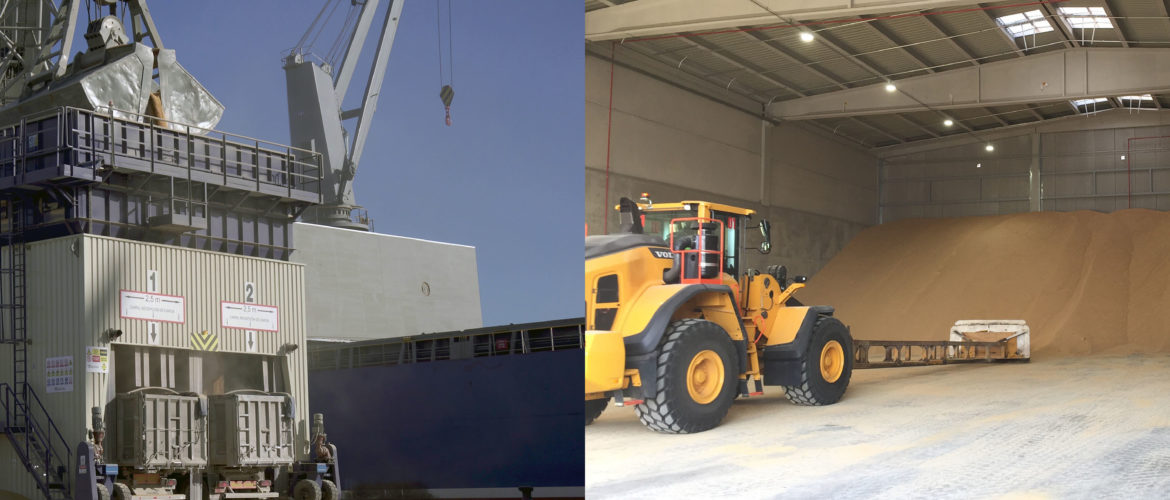- This ensures that products intended for animal feed in all the links of the food chain are harmless.
- This is another milestone in the investments that are being made in the terminal, according to the new commercial strategy to give it fresh impetus.
- The investments planned for handling agrifood products have been made, and further investments are planned in the coming months.
The terminal of Noatum Terminals in the Port of Malaga has obtained the GMP + Feed Safety Assurance certificate, which guarantees that all the products intended for animal feed in all the links of the food chain are harmless.
The GMP+FSA certificate is an internationally recognised seal of approval. The certification scheme includes the requirements of the quality management system (ISO 9001), HACCP, product standards, traceability, process monitoring, prerequisite programmes, and the Early Warning System (EWS).
According to Joaquín Ramón Lestau, CEO of Noatum Terminal Málaga, “this is another milestone in the investments that we are making at the terminal, according to the new commercial strategy that involves giving the terminal fresh impetus in order to attract new importation traffic for agrifood products.”
To date, Noatum Terminals has made its planned investments which have equipped Noatum Terminal Malaga with the appropriate infrastructure for this activity. This includes 6,000 m2 of warehouses, 1 mobile crane, 1 ecological hopper, forklift trucks and various equipment for the specific handling of agrifood products.
At the same time, it is making further commitments to the port in the form of more investments to generate more imports of agrifood products, in order to continue consolidating the Port of Malaga as an integrating factor in its area of influence.
In 2017, more than one million tons of bulk goods passed through Noatum Terminal Malaga, mainly in the form of agrifood products, and the terminal handled more than 73,000 TEUs and 54,000 vehicles.
